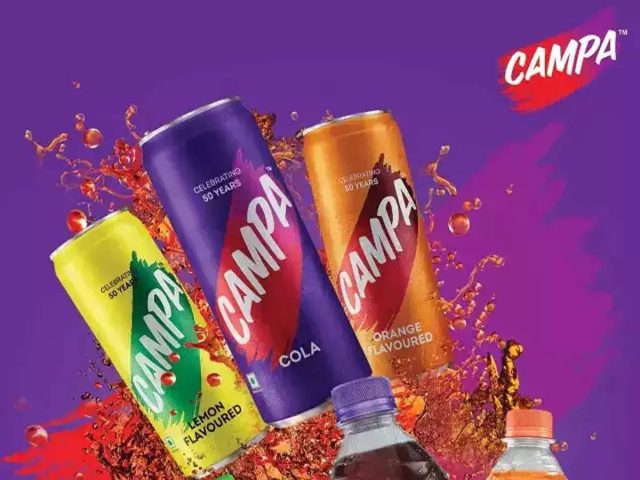Why Coca-Cola and PepsiCo could lose out in India to Campa
The relaunch of Indian fizzy drink brand Campa, owned by Reliance Consumer, will steal market share from Coca-Cola and PepsiCo, say analysts.

In a recent drill down into the relaunch, data and analytics company GlobalData revealed that leveraging penetration pricing, high marketing expenditure, and Reliance Consumer’s broad retail distribution network were all poised to bring Campa at par with the carbonate brands of multinational operators, Coca-Cola and PepsiCo.
According to its market analysts, Coca-Cola and PepsiCo currently dominate the US$18 billion Indian carbonates market and yet all of that is about to change with Campa’s re-emergence.
Following the acquisition of the Campa brand in August 2022, Reliance Group sold large SKUs of Campa through its Reliance Retail outlets and has since relaunched the product in three flavours – Cola, Lemon, and Orange across five pack sizes: 200ml, 500ml, 600ml, one litre, and two litres. This, GlobalData assessed, is a determined move to take on the most popular fizzy drink soft drink and mixer brands in India such as Coca-Cola, Pepsi Cola, Sprite, 7-Up, Fanta, and Mirinda.
Bobby Verghese, consumer analyst at GlobalData, said: “Reliance Consumer is also taking on market heavyweights Coca-Cola and PepsiCo through competitive pricing. For instance, the introductory price for a 200ml SKU of Campa Cola is INR10 (US$0.12) compared to INR20 (US$0.24) for a 250ml SKU of Coca-Cola.”
Partner Content
Verghese explained: “Penetration pricing can boost Campa’s traction among the price-sensitive Indian masses, especially in the rural markets. The aggressive pricing will magnify the impact of the relaunch amid the cost-of-living crisis, as 68% of Indian consumers are extremely concerned about the impact of inflation on their household budget.”
Additionally, it has been observed that there is a plan to use Indian’s love of cricket to also broaden the brand’s reach among fans to really amplify messages that it is now available and a better way for the nation to support its teams with a native drink brand.
GlobalData India business development manager Francis Gabriel Godad revealed: “Reliance Consumer also announced plans to launch an intensive marketing campaign at the Indian Premier League (IPL) 2023, a popular domestic cricket tournament with a viewership of over 200 million. Reliance’s branding activity during the event will thereby amplify Campa’s mass-market awareness in the cricket-loving nation. Moreover, as the official sponsor of the popular ‘Mumbai Indians’ IPL team, Reliance Group can rope in popular cricketers as brand ambassadors. This is a powerful marketing strategy given that endorsements by celebrities or organisations are an essential feature that 29% of Indians actively look for when purchasing products, according to GlobalData’s 2022 survey.”
Godad stated: “Campa’s brand nostalgic value among Gen X and the Millennial cohorts will also aid it in making a comeback. Similarly, as homegrown brands both Reliance and Campa can capitalise on the localism trend, which favours domestic brands. Reliance can also leverage its own offline retail and e-commerce stores to quickly narrow the gap with Coca-Cola and PepsiCo’s nationwide distribution networks and bolster Campa’s market penetration. In terms of pricing, Reliance Consumer can go toe-to-toe with multinational operators.”
Verghese added: “Campa’s relaunch is just another step in Reliance Consumer’s strategy to build its own consumer packaged goods brand, Independence. In the coming years, the company is expected to bring Campa and other acquired brands under the Independence umbrella brand.”
Related news
Delamain Cognac is 'optimistic about the future in China'
Carlsberg Hong Kong expands no and low alcohol portfolio
Diageo sells East African Breweries stake to Asahi for US$2.3bn




